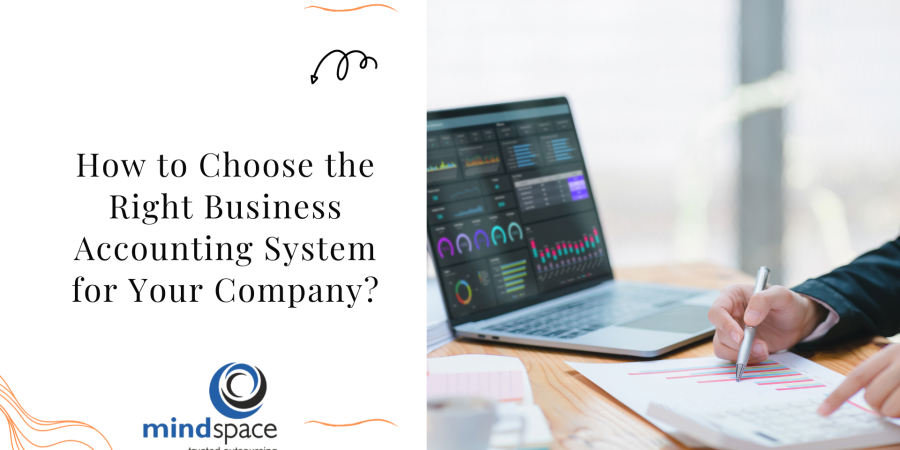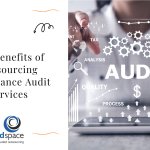How to Choose the Right Business Accounting System for Your Company?
Introduction
In today’s fast-paced business environment, a reliable accounting system is crucial for managing finances efficiently and ensuring your company’s success. The right business accounting system streamlines your financial processes and provides valuable insights that drive informed decision-making. However, with a multitude of options available, selecting the right system can be a daunting task. This guide will help you choose the best accounting system for your company, ensuring it meets your unique needs and supports your business goals.
Understanding the Business Accounting Process
Before diving into the selection process, it’s essential to understand the business accounting process. This involves recording, summarizing, and reporting financial transactions to provide a clear picture of your company’s financial health. An effective accounting system simplifies this process by automating tasks, reducing errors, and ensuring compliance with financial regulations.
Must Read: Tips For Choosing The Best Business Process Outsourcing Company
Key aspects of the business accounting process include:
- Transaction Recording: Documenting every financial transaction, including sales, purchases, receipts, and payments.
- Financial Reporting: Generating financial statements such as income statements, balance sheets, and cash flow statements.
- Internal Controls: Implementing policies and procedures to ensure the accuracy and integrity of financial data.
A robust accounting system should support each of these aspects, helping your business maintain accurate records and make informed financial decisions.
Factors to Consider When Choosing an Accounting System
Choosing the right accounting system involves evaluating several factors to ensure it aligns with your business needs. Here are the key considerations:
1. Business Size and Complexity
The size and complexity of your business will significantly influence your choice of an accounting system. For small businesses with straightforward financial processes, a basic accounting system may suffice. However, larger companies with complex operations may require a more comprehensive solution with advanced features such as multi-currency support, inventory management, and payroll processing.
2. Accounting System Online vs. Offline
Decide whether you prefer an online or offline accounting system. Online systems, also known as cloud-based systems, offer several advantages, including real-time access to financial data, automatic updates, and remote accessibility. They are particularly beneficial for businesses with multiple locations or remote teams. On the other hand, offline systems might be preferable if you require greater control over your data and have robust IT infrastructure in place.
3. Ease of Use
An intuitive and user-friendly interface is crucial, especially if your team has limited accounting experience. The system should be easy to navigate, with clear instructions and support resources available. A steep learning curve can lead to errors and inefficiencies, so prioritize systems that offer a seamless user experience.
4. Integration with Other Systems
Your accounting system should easily integrate with other software and systems you use, such as Customer Relationship Management (CRM) software, Enterprise Resource Planning (ERP) systems, or payroll processing tools. Seamless integration reduces the need for manual data entry, minimizing errors and saving time.
5. Cost
The cost of accounting systems varies widely depending on the features offered and the size of your business. Consider both the upfront cost and any ongoing expenses such as subscription fees, maintenance, and support. While it may be tempting to opt for the cheapest option, investing in a high-quality system that meets your needs will pay off in the long run.
6. Scalability
As your business grows, your accounting needs will evolve. Choose a system that can scale with your business, accommodating increased transaction volumes, additional users, and more complex financial processes. Scalable systems often offer customizable features and modules, allowing you to expand their functionality as needed.
8. Internal Controls and Security
The accounting system and internal control measures must be robust to protect your financial data. Look for systems with strong security features, including encryption, user access controls, and audit trails. These features help prevent fraud and unauthorized access, ensuring your financial data remains secure.
9. Support and Training
Reliable customer support is essential, particularly during the initial setup and transition phase. Ensure the system provider offers comprehensive support options, including live chat, phone support, and online resources. Additionally, check if they provide training sessions or tutorials to help your team get up to speed with the new system.
Suggested Read: Why Account Outsourcing Is Beneficial For Your Business?
Top Business Accounting Software for Small Business
For small businesses, the right business accounting software for small business can make a significant difference in managing finances efficiently. Here are a few top-rated options:
1. QuickBooks Online
QuickBooks Online is a popular choice for small businesses due to its ease of use and comprehensive features. It offers invoicing, expense tracking, payroll processing, and financial reporting. The cloud-based platform ensures you can access your financial data from anywhere.
2. Xero
Xero is known for its user-friendly interface and powerful integrations with other business tools. It offers multi-currency support, bank reconciliation, and inventory management, making it suitable for small to medium-sized businesses.
3. FreshBooks
FreshBooks is ideal for service-based businesses that require time tracking and invoicing features. It also offers expense management, project management, and financial reporting, all within an easy-to-use platform.
4. Zoho Books
Zoho Books is a cost-effective option that offers a range of features, including invoicing, expense tracking, and inventory management. It integrates seamlessly with other Zoho products, providing a comprehensive solution for small businesses.
Suggested Read: The Rise of Outsourced Bookkeeping Services: Trends and Insights
Making the Final Decision
Choosing the right business accounting system requires careful consideration of your company’s specific needs, budget, and future growth plans. Start by identifying the core features that are essential for your business and then evaluate systems based on the factors discussed above. Don’t hesitate to take advantage of free trials or demos offered by software providers to test the system’s functionality and ease of use before making a final decision.
In conclusion, the right accounting system will streamline your business accounting process, enhance your internal controls, and provide you with the insights needed to make informed financial decisions. Whether you opt for an accounting system online or an offline solution, investing in the right system is crucial for the long-term success of your business.


